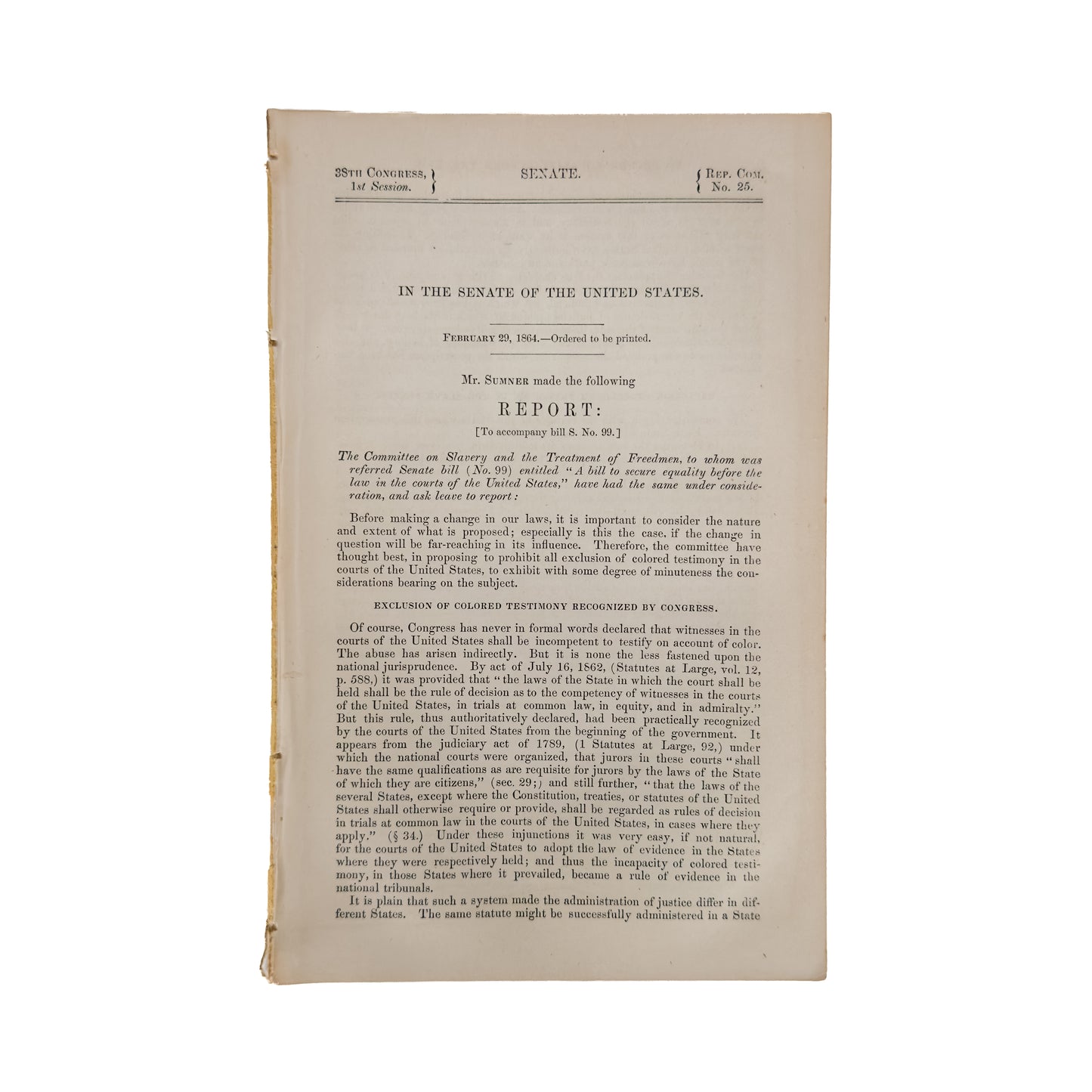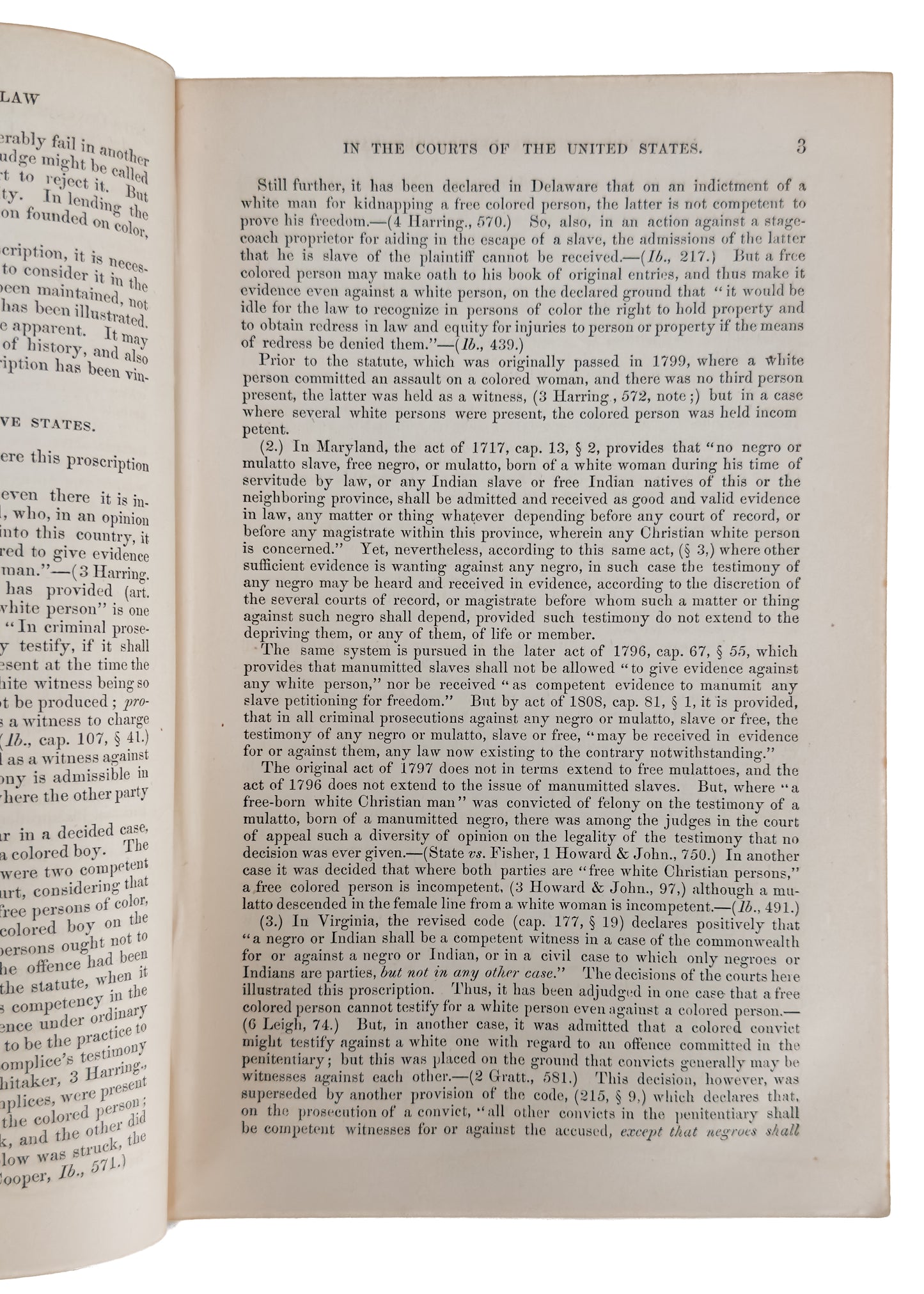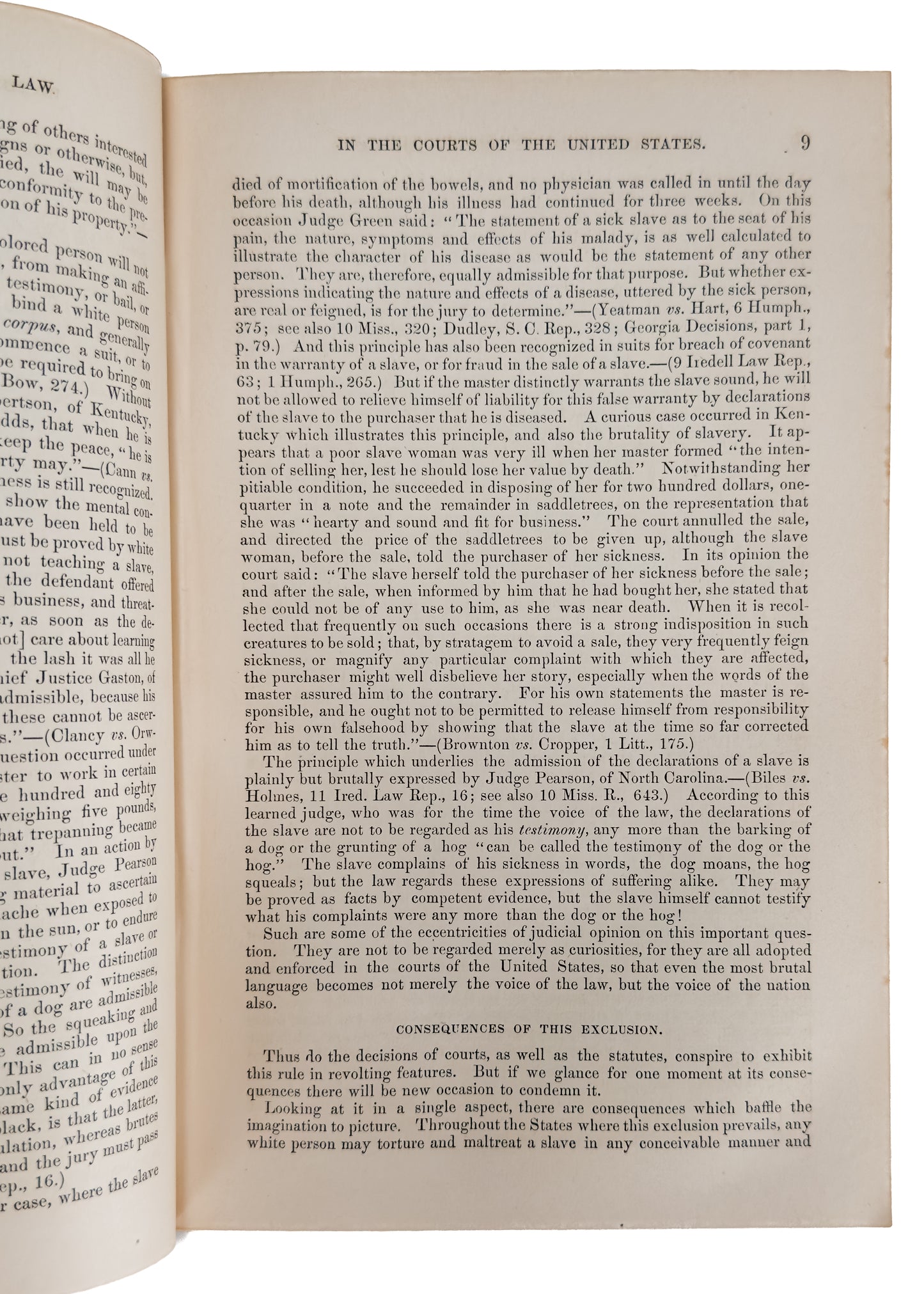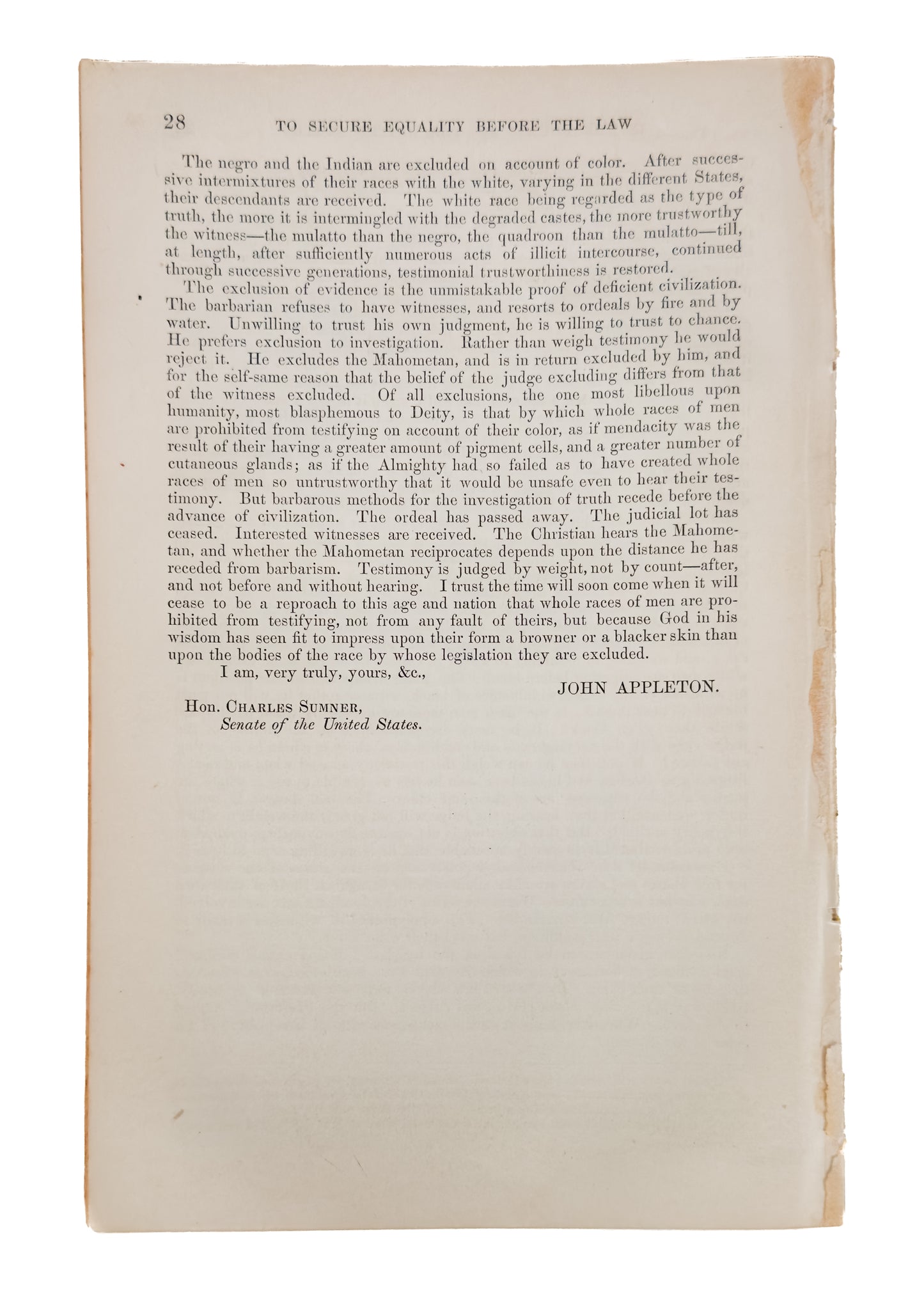Specs Fine Books
1864 CHARLES SUMNER. Thirteenth Amendment, Slavery and Freedmen Right to Testify in Court.
1864 CHARLES SUMNER. Thirteenth Amendment, Slavery and Freedmen Right to Testify in Court.
Couldn't load pickup availability
A very rare and desirable report of Charles Sumner's 1864 speech before the United States Senate regarding the rights of former slaves to testify in court. Fascinatingly, Sumner provides a history of black marginalization from the courts, argues that it was never intentionally called for by the Constitution and that there is nothing in "colored persons" as a people that could be in any way used to argue that they should not be legitimate witnesses in court.
He then goes on the excoriate the veneer of Southern justice, which had used this national de facto policy of prohibiting black testimony to essentially make it impossible for any black person to ever seek justice on their own or another slave's behalf. Again, with historical background into the early 18th century.
Finally, he works against traditional white arguments regarding black testimony, i.e. that they were motivated to lie, that they were generally heathen and untrustworthy, etc.,
As called for, the letter of Chief Justice John Appleton [of Maine] to Charles Sumner on the same subject appended at rear.
Charles Sumner was of course himself Chairman of the Select Committee on Slavery and Freedman and was so insistent on movement on the slavery issue that he was at one time punched unconscious by a Southern Senator.
Rare. No copies on the market or offered at auction.
Sumner, Charles. In the Senate of the United States. February 29, 1864. - Ordered to be Printed. Mr. Sumner Made the Following Report: [To Accompany Bill S. No. 99.] The Committee on Slavery and the Treatment of Freedmen, to whom was referred Senate bill (No.99) entitled "A bill to secure equality before the law in the courts of the United States," have had the same under consideration, and ask leave to report: Washington D.C. 1864. 28pp.
Textually very good, complete, and crisp. Removed at some point from a larger sammelband, but textual pagination complete. Disbound.
Share








